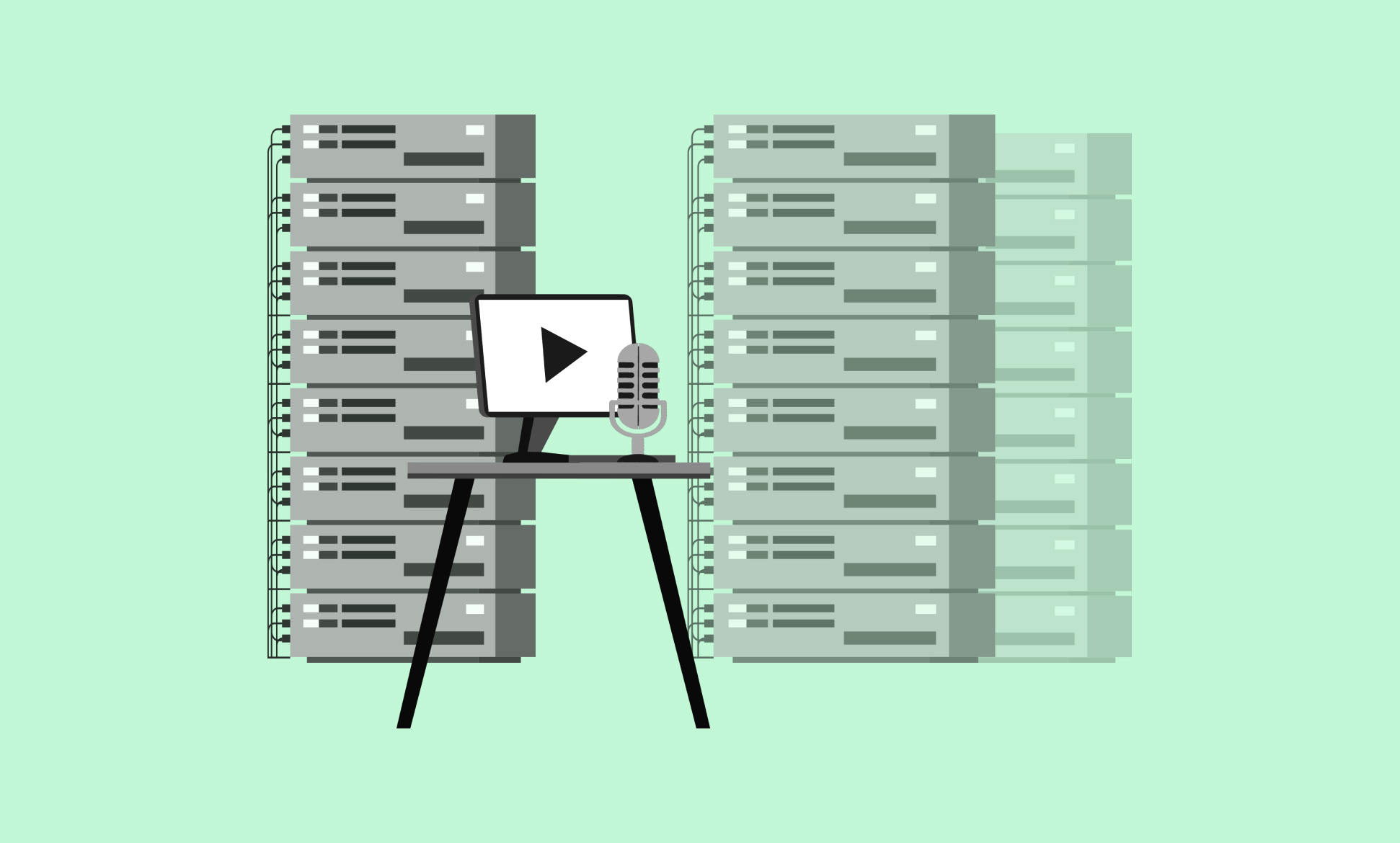In the ever-evolving landscape of podcasting, one crucial aspect remains constant: podcast analytics.
These insightful data points hold the key to unlocking the true potential of your podcast and can be the difference between soaring success and missed opportunities.
For marketers, understanding how to effectively track and analyze podcast statistics is essential in making informed decisions and maximizing your return on investment (ROI).
That’s why we put together this article all about the importance of podcast tracking and how to get started:
What is podcast tracking?
First thing first: what is podcast tracking?
Tracking analytics for your podcast consists of gathering relevant data about your show such as demographics, downloads, consumption rates, etc. You can track this data in various marketing softwares or by creating your own analytics sheet/report so you can compare weeks, months, episodes, and shows.
Why is podcast tracking so important?
It's only natural to feel a sense of pride and accomplishment in producing and publishing your episodes. Yet, when it comes to achieving specific goals such as brand awareness or lead generation, an objective viewpoint becomes indispensable.
This is where the power of metrics steps in – they offer undeniable evidence of whether your time and energy have been wisely spent.
Data-driven strategies aid in fine-tuning your podcast content and style and play a pivotal role in guiding broader marketing and branding decisions. Here are some key reasons why podcast analytics are the backbone of your podcast's success:
1. You can make informed, data-driven decisions
Why do data points matter? Simply put, they reveal the story behind the numbers, turning raw data into actionable knowledge. By analyzing these trends, you can eliminate the guesswork and make informed decisions to steer your efforts in the right direction.
Data-driven decisions involve using analytics and insights gathered from various sources to understand the performance and effectiveness of your podcast. By tracking relevant metrics, podcasters can make informed choices that can lead to better content creation, audience growth, monetization opportunities, and overall success of their podcast. Here are some ways tracking guides decision-making:
Understanding audience behavior:
Podcast tracking using tools like Audience Profile and B2B Analytics allows you to analyze listener behavior, such as the number of downloads, plays, and episode completion rates. This information helps you comprehend what content resonates most with your audience, allowing you to tailor future episodes to their preferences and interests.
Identifying popular topics and guests:
By tracking the performance of individual episodes, you can determine which topics and guests generate the most engagement. This insight enables you to focus on producing content that attracts and retains a larger audience.
Measuring listener demographics:
Podcast tracking tools often provide data on listener demographics, such as age, location, income, and gender. Understanding your audience's characteristics helps you refine your target demographic and customize your podcast's tone and content to cater to your ideal listeners.
Evaluating marketing strategies:
Using Tracking Links, you can assess the effectiveness of various marketing efforts by tracking your download sources. By examining the impact of social media promotions, email campaigns, or cross-promotions with other creators, you can optimize your marketing budget and concentrate on channels that yield the best results.
Monitoring listener feedback:
Monitoring reviews, comments, and listener feedback is crucial for improving your podcast. Podcast tracking enables you to gather feedback from multiple platforms and gain valuable insights into what your audience appreciates and what aspects need improvement.
Optimizing advertisements:
If your podcast includes advertisements, tracking download data and listener behavior help advertisers gauge the reach and performance of their ads. This data-driven approach facilitates better targeting and helps advertisers make informed decisions about their ad placements.
Comparing performance with benchmarks:
By tracking industry benchmarks and comparing your podcast's performance against them, you can identify areas for improvement and set realistic goals for growth.
Justifying investments:
If you're seeking sponsorships or funding for your podcast, data-driven insights become vital to support your claims. Metrics like listener numbers, engagement rates, and demographic data can demonstrate the value of your podcast to potential partners.
2. Receive actionable insights for your podcast
Next up, you can receive actionable insights for your podcast. Gather insights that enable you to take action with your podcast through data you otherwise wouldn't have known could have a positive impact on your show.
For example, say you put out an episode that has a slightly different format than your normal structure. You realize that after you released it, you have nearly double the number of listeners along with a higher consumption rate on that episode compared to previous ones.
This could give you the insight that maybe you should try switching your episode structure to the new format that you just released. Or maybe a similar thing happens with the type of guest you have on your podcast or a marketing tactic that you test out.
Alternatively, it may show you what you shouldn’t be discussing on your podcast or the formats that don’t resonate with your audience.
This type of insight can truly help to better your podcast and give way to what marketing tactics will help you build your audience.
3. Measure and understand your podcast’s performance
And lastly, you can use podcast data to track your podcast’s performance over time.
If you have no idea how your podcast performed in year one compared to year three, how will you know if you’re improving or declining?
Tracking podcast performance can be done weekly, monthly, quarterly, yearly, seasonally, or maybe it’s done episode to episode. Whatever tracking cadence makes sense for you and your show, ensure that you stick to updating the data because without it, how will you know how you’re performing?
Three common ways marketers measure their podcast performance are through:
Podcast media hosting sites
These platforms serve as hosts and repositories for a podcast's media files. They automatically update podcast directories, like Apple Podcasts and Spotify, whenever fresh content is published through an RSS feed link. Often times these sites include data like downloads and unique listeners, device used, subscriber count, and more.
Distribution platforms
These platforms, like Google, Spotify, and Apple, drive visibility. Their analytics are primarily concerned with podcast performance and include metrics such as the number of listeners, reviews and ratings, and episode consumption rate. Each listening app has its own portal or manager tool that can provide you with a wealth of information about your show’s performance, episode performance, and trends.
Third-party podcast analytics tools
Third-party providers or hosting/distribution platforms, like CoHost, serve as a centralized hub that monitors and analyzes podcast performance via various crucial metrics, including listener demographics, episode downloads, listener engagement, retention rates, B2B Analytics, and geographical insights. When it comes to third-party tools, there are both free and paid options, so regardless of your budget, you can still monitor performance.
From zero to hero
Podcast analytics are essential to make well-informed decisions regarding how to effectively market, advertise, monetize, and produce your podcast.
Remember to define and refine your podcast's data while tracking essential Key Performance Indicators (KPIs) with accurate statistics.
However, the true power lies in combining these analytics with other performance metrics like listener reviews and social media engagement. By doing so, you can construct a comprehensive picture of your audience, their behavior, their preferred content, and how these factors influence your podcast's growth.
If you’re interested in learning more about podcast tracking or how to get started, reach out to our team!










